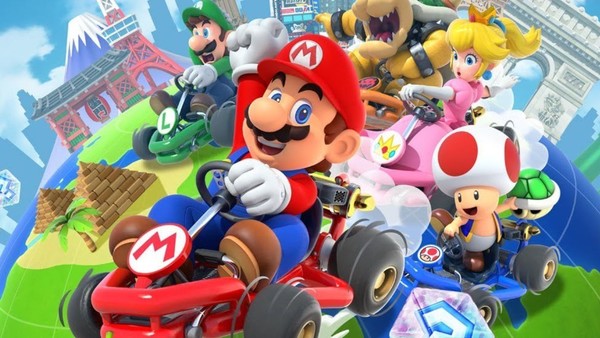7 Times The Video Game Industry Gave In To Greed
1. The Ugly Face Of Mobile Gaming

This can't be put plainly enough: the sheer level of greed in the mobile video game market is utterly disgusting in places. Somehow, this sub-community of the industry has become a place where developers, even trusted ones, put out the most lazy, money-grubbing attempts at an easy payday ever seen - and still they manage to turn a fair wad of revenue.
To better illustrate the point, let's take three examples of where things have just been plain insulting: Final Fantasy: All The Bravest, Tales of Phantasia, and the recently released Mario Kart Tour.
For starters, All the Bravest is a joke of a Final Fantasy game, taking arguably the worst aspects of the series - grinding - and turning that into the selling point of the game. To play, you simply tap or swipe characters who then attack without any direction or input from you, and should you get your party totalled, you either have to wait three minutes per character or pay money in order for the group to resurrect. Worse still, you have no choice over which characters you unlock - and when you’ve got fan favourites like Cloud and Squall as potential unlocks it becomes clear that this was done to stop fans from just running the dream team of their choice without a cash injection. Disgusting.
Next, Tales of Phantasia, which is abysmal in its approach to getting fans to pay money to play, as this port locks the game on its hardest difficulty, removes save spots before bosses and worse still doubles the price of in game items all to make the actual microtransactions that revive party members more required than ever. Honestly, this is a terrible way to reward fans who downloaded the game and is a brutally on-the-nose message about how much Bandai Namco wanted your money and wanted it now.
Finally, we have the most recent and arguably most depressing example, Mario Kart Tour, a game which shamelessly implements greedy practices to prey on its player base. From the start, players are introduced to the loot box pipe and the concept of a paid-for monthly subscription model. Why would you need the subscription? To level up your drivers and stand a chance of actually completing an in game “tour” before it resets. Which it does every two weeks.
At its core, there is a fairly well made game, but the sheer aggression and push for players to buy rubies and spin slots - sorry, pull pipes because that’s totally different - is almost out of character for Nintendo’s family friendly image. The ability to reset your drop rates through another payment is especially shallow and one has to ask the question: “how do they think they’ll get away with this?”